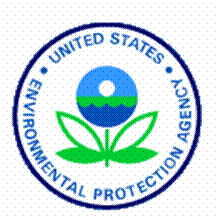 I just received the following response information from the EPA attributed to Byron Bunker, Director, Compliance Division, Office of Transportation and Air Quality. The EPA representative I spoke with says the agency knows of the biodiesel industry concerns and wanted to provide a response to those concerns. The response is in the form of eight bullet points:
I just received the following response information from the EPA attributed to Byron Bunker, Director, Compliance Division, Office of Transportation and Air Quality. The EPA representative I spoke with says the agency knows of the biodiesel industry concerns and wanted to provide a response to those concerns. The response is in the form of eight bullet points:
1. EPA is committed to getting the RFS program back on track.
We understand industry’s desire for certainty. EPA is committed to getting the RFS program back on track. We expect to take action on 2014, 2015 and 2016 this spring. We look forward to talking with all stakeholders throughout the process.
2. The CARBIO plan DOES NOT lower the RFS sustainability standards for Argentinian biodiesel producers.
Any claim that the CARBIO plan decreases environmental oversight is flatly wrong. The sustainability standards are exactly the same for all parties. This Alternate Biomass Tracking plan is simply one mechanism by which Argentinian producers can meet the record keeping requirements of the program.
The sustainability standards were defined in the Energy Independence and Security Act (EISA) of 2007. Namely, in order to qualify for the RFS program, planted crop and crop residue used as feedstock for biofuels must be harvested from agricultural land cleared or cultivated prior to December 2007 (the date of EISA’s enactment).
The RFS regulations Congress established in 2007 apply to both foreign and domestic producers. Any foreign or domestic renewable fuel producer or renewable identification number (RIN) generating importer may meet the recordkeeping requirements for tracking feedstock from qualified lands with an alternative biomass tracking program that has been approved by the EPA. In fact, several countries already import biofuel under the existing regulations.
3. The CARBIO program actually provides for more rigorous oversight of Argentinian producers who choose to participate in this program.
For example:
· The plan is intended to ensure that qualifying fuel can be traced to pre-identified and pre-approved lands from which “renewable biomass” may be harvested consistent with regulatory definition of that term. The alternate biomass tracking program is a robust program that covers the whole soybean biodiesel supply chain, from soybean production through intermediate processing, to biodiesel production.
· CARBIO’s method for tracking chain of custody relies on a product transfer document called a cartas de porte, or waybill that has been mandatory in Argentina since 1998. In addition CARBIO will use land cover data from satellite imagery to identify land that was cleared or cultivated prior December 19, 2007 and actively managed or fallow and non forested on December 19, 2007.
· Any volumes that would qualify under this plan would need to have all steps verified by the approved third-party auditor before a RIN can be generated.
· Any and all other necessary RFS regulatory requirements also apply per the regulations.
4. Why would Argentine producers appeal to EPA for more stringent requirements?
It’s like someone asking a professional tax preparer to do your taxes. They know the codes, the regulation and how to manage the documentation. People want certainty and protection that they are complying with the extensive laws, which most common people don’t know or understand, and so they want the protection of the professional tax preparer. This is no different for the parties in Argentina.
5. EPA’s decision to approve the CARBIO program has no connection to our work on RFS proposals.
EPA’s Compliance division is entirely separate from the division working on the RFS proposals for 2014, 2015 and 2016.
We understand industry’s desire for certainty. EPA is committed to getting the RFS program back on track. We expect to take action on 2014, 2015 and 2016 this spring. We look forward to talking with all stakeholders throughout the process.
6. This decision does not mean the U.S. market is about to be flooded by Argentinian biodiesel.
Producers decide where to sell their feedstock based on multiple market factors, including where they can get the highest price.
The CARBIO program will be implemented on this year’s soybean harvest, which will start sometime in March and run through June or July. The earliest that fuel might be exported under this program is later this fall (September or later), after soybeans currently in the field have been harvested, crushed, and refined to produce biodiesel.
Any volumes that would qualify under this plan would need to have all steps verified by the approved third-party auditor before a RIN can be generated.
7. Our determination was made based on whether the plan met regulatory requirements.
Whether unfair Argentinian biofuel subsidies exist is not part of the technical regulatory determination made by EPA in approving the CARBIO plan.
The Agency’s determination was made based on a compelling demonstration that the proposed Alternate Biomass Tracking plan met or exceeded regulatory requirements. Those requirements are intended to ensure that approved plans will provide effective verification that feedstocks used to make biofuels imported into the United States for participation in the renewable fuel standard program are “renewable biomass” as defined in the Clean Air Act.
USTR is the competent federal body to address potential inequities in agricultural subsidies between the United States and foreign countries.
8. When does the agency anticipate making an announcement on 2014, 2015, and 2016 RVO numbers?
We understand industry’s desire for certainty. EPA is committed to getting the RFS program back on track. We expect to take action on 2014, 2015 and 2016 this spring. We look forward to talking with all stakeholders in the coming months.

